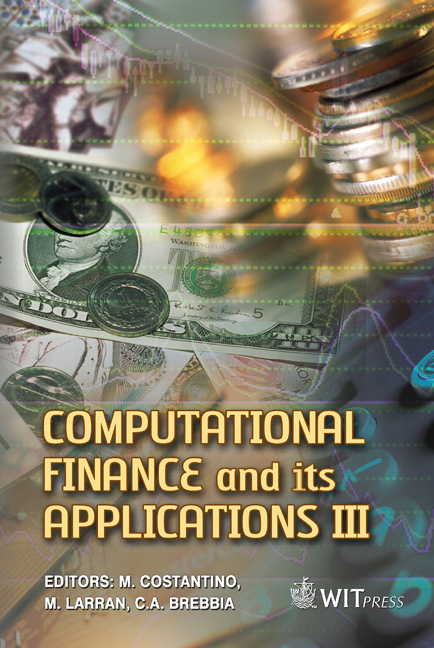Day-of-the-week Effect In Some Of The Gulf Cooperation Council (GCC) Stock Markets
Price
Free (open access)
Volume
41
Pages
8
Page Range
149 - 156
Published
2008
Size
546 kb
Paper DOI
10.2495/CF080141
Copyright
WIT Press
Author(s)
A. M. Al-Barrak
Abstract
This paper examines the day-of-the-week effects in some of the Gulf Cooperation Council (GCC) stock markets namely the Saudi Stock Market, the Kuwaiti Stock Exchange, and the Dubai Financial Market. The empirical research was conducted using the variances (ANOVA) test to find if there were significant differences between the daily returns in these markets from January 2002 to December 2005. Results obtained indicate the significant presence of the day of the week effect on the Kuwaiti Stock Exchange (KSE), the highest return is observed on Saturday and the lowest return is observed on Sunday. Keywords: day-of-the-week effect, Gulf cooperation council stock market. 1 Introduction French (1980) originally observed that stock returns are higher than average on the last trading day of the week and lower than average on the first. Since then, a great number of researchers have attempted to explain and examine what has come to be known as the \“weekend” or \“day-of-the-week” effect. Now, it is well documented in the finance literature that the weekend or the day-of-the-week could affect the performance of the stock market. Most of these researches have documented that the average return on Friday is abnormally high, and the average return on Monday is abnormally low (Agrawal and Tandon [1], and Mills and Coutts [15]). Jaffe and Westerfield [10] and Keim and Stambaugh [12] say that this anomalous empirical finding is one of the most puzzling phenomena in finance. In this paper, we extend the determination of the day-of-the-week effect existing in a sample of three Gulf Cooperation Council (GCC) stock markets,
Keywords
day-of-the-week effect, Gulf cooperation council stock market.





